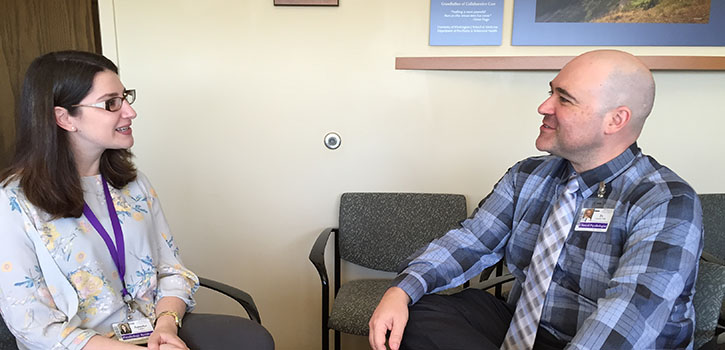Supervision, Resident Evaluation, and Program Evaluations
Supervision
Each resident receives at least four hours of supervision each week, at least half of which is individual supervision by a licensed clinical psychologist. The additional two hours may be in the form of individual or group supervision. Many rotations also offer additional structured learning opportunities and supervision such as case conferences, interdisciplinary conferences, opportunities to observe faculty interviews or ongoing treatment with patients.
Resident Evaluation
Resident are officially evaluated 3 times per year (mid-October, mid-January, and mid-June) on their Professional Wide Competencies (PWC) as defined by the American Psychological Association to evaluate their competencies during their internship year. APA has defined 9 domains within our profession that every professional psychologist must demonstrate as a trainee in order to become a psychologist. The 9 domains are:
1. Research (Integration of psychological science and practice)
2. Ethical and legal standards
3. Individual and cultural diversity
4. Professional values, attitudes, and behaviors
5. Communication and interpersonal skills
6. Assessment
7. Intervention
8. Supervision
9. Consultation and interprofessional/interdisciplinary skills
Our training supervisors are required to evaluate each trainee in each of these Professional Wide Competency domains using the Minimal Level of Achievement (MLA) for completion of Internship is “Readiness for Entry Level Practice” defined as:
1. the ability to independently function in a broad range of clinical and professional activities;
2. the ability to generalize skills and knowledge to new situations; and,
3. the ability to self-assess when to seek additional training, supervision or consultation.
Program Evaluation
Residents are asked to provide their feedback on their rotation and supervisor experiences. Residents provide written evaluation of their program experiences which are held in confidence until the end of the internship year. At which time, the leadership and supervisors review the feedback provided by the outgoing residents.
Last Modified: October 3, 2023